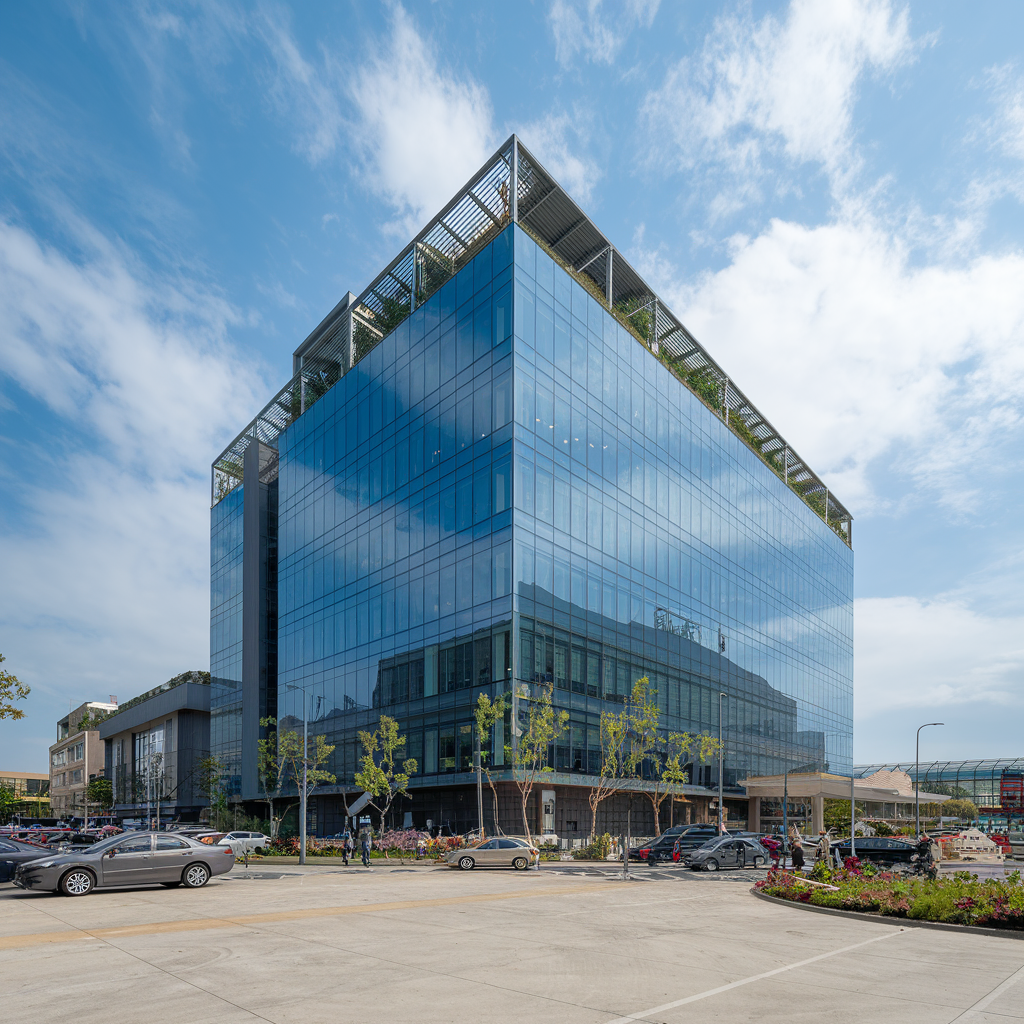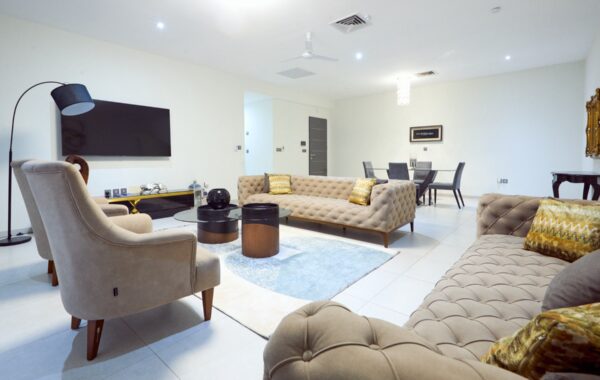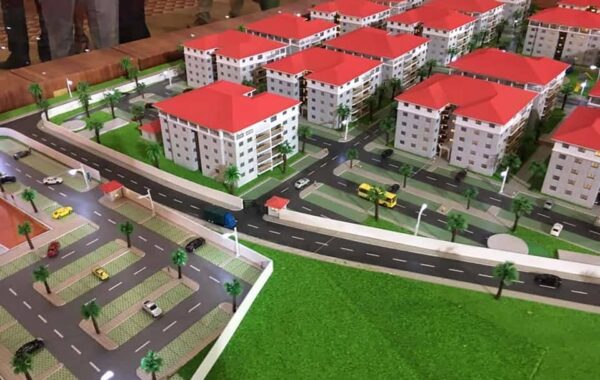
Market Analysis: Trends Shaping Real Estate Investment in Ghana
The Evolving Real Estate Landscape in Ghana
Ghana’s real estate market has experienced remarkable growth and transformation in recent years, driven by a combination of economic, demographic, and social factors. As the country continues to develop and urbanize, the demand for high-quality residential, commercial, and industrial properties has surged, presenting both opportunities and challenges for investors and developers.
Understanding the Ghanaian Real Estate Market
Ghana’s real estate sector has long been a significant contributor to the country’s economic growth, accounting for a substantial portion of the gross domestic product (GDP). According to the Ghana Statistical Service, the real estate industry grew by 5.7% in 2022, indicating the resilience and potential of the market.
The growth in the real estate sector has been fueled by several key factors, including:
- Population Growth and Urbanization: Ghana’s population has been steadily growing, with an estimated population of over 32 million as of 2023. Additionally, the country’s rapid urbanization, with more than 57% of the population now living in urban areas, has led to a surge in demand for housing, commercial spaces, and supporting infrastructure.
- Economic Expansion and Stability: Ghana’s economy has experienced stable growth in recent years, with a GDP growth rate of 5.4% in 2022. This economic expansion has increased disposable incomes, boosting the purchasing power of individuals and driving demand for real estate investments.
- Rising Middle Class: Ghana’s growing middle class, characterized by higher incomes and purchasing power, has become a significant driver of real estate demand, particularly for high-end residential and commercial properties.
- Improved Infrastructure and Accessibility: The government’s ongoing efforts to improve the country’s infrastructure, including the development of new roads, airports, and public transportation systems, have enhanced the connectivity and accessibility of various regions, making them more attractive for real estate investments.
Trends Shaping Real Estate Market in Ghana
As the real estate landscape in Ghana continues to evolve, several key trends are shaping the market and influencing investment decisions:
1. Shift Towards Luxury and High-End Development
The growing affluence of Ghana’s population has led to a surge in demand for luxury and high-end residential properties. Developers are increasingly focusing on constructing upscale apartments, townhouses, and gated communities that cater to the needs of the country’s rising middle and upper-class demographics.
2. Increasing Focus on Mixed-Use Projects
The real estate market in Ghana is witnessing a shift towards mixed-use developments, which combine residential, commercial, and recreational elements within a single integrated project. These mixed-use complexes offer a comprehensive living experience, addressing the growing demand for convenience, accessibility, and work-life balance.
3. Emergence of Purpose-Built Student Accommodation
With the rising enrollment in tertiary institutions across Ghana, the demand for purpose-built student accommodation has gained traction. Developers are now focusing on constructing modern, well-equipped student housing facilities to cater to the needs of the growing student population.
4. Expansion of the Hospitality Sector
The growth of Ghana’s tourism industry has fueled the expansion of the hospitality sector, leading to increased investment in hotels, resorts, and other hospitality-related real estate projects. This trend is particularly evident in popular tourist destinations and urban centers.
5. Digitalization and PropTech Advancements
The real estate industry in Ghana is witnessing the integration of digital technologies and PropTech solutions. From online property listings and virtual property tours to the use of data analytics for market insights, technology is transforming the way real estate businesses operate and engage with customers.
Opportunities and Challenges in the Ghanaian Real Estate Market
As the real estate market in Ghana continues to evolve, both opportunities and challenges have emerged, influencing the investment landscape.
Opportunities:
- Growing Demand for Housing: The high population growth and rapid urbanization in Ghana have created a significant demand for affordable and high-quality housing, especially in urban areas.
- Expanding Commercial and Retail Sectors: The growth of Ghana’s economy and the rising middle class have increased the demand for commercial and retail spaces, such as office buildings, shopping malls, and mixed-use developments.
- Increasing Foreign Investment: Ghana’s political and economic stability, combined with its strategic location and growing consumer market, have attracted the attention of international investors, who are increasingly exploring real estate opportunities in the country.
- Emerging Niche Markets: The real estate market in Ghana has witnessed the emergence of specialized sectors, such as purpose-built student accommodation, senior living facilities, and industrial/logistics properties, presenting opportunities for investors to diversify their portfolios.
Challenges:
- Land Ownership and Titling Issues: Navigating the complex land tenure system and securing clear land titles can be a significant challenge for real estate developers and investors in Ghana.
- Infrastructure Deficiencies: Despite recent improvements, Ghana’s infrastructure, particularly in terms of transportation, utilities, and urban planning, still faces challenges that can impact the feasibility and viability of real estate projects.
- Financing Constraints: Access to affordable and long-term financing options remains a concern for both real estate developers and prospective homebuyers, hindering the growth and expansion of the market.
- Regulatory Uncertainties: The real estate sector in Ghana is subject to a complex regulatory environment, with ongoing policy changes and inconsistencies that can create challenges for investors and developers.
- Rising Construction Costs: The increased costs of building materials, labour, and other construction-related expenses can impact the profitability and affordability of real estate projects in Ghana.
Conclusion: Navigating the Promising Future of Real Estate in Ghana
The Ghanaian real estate market presents a promising future for investors and developers who are willing to navigate the evolving landscape and capitalize on emerging trends. By understanding the market dynamics, identifying the key opportunities, and addressing the prevailing challenges, investors can position themselves to harness the growth potential of Ghana’s real estate sector.
One such promising development is Eden Heights, a luxury residential complex located behind the West Hills Mall in Accra. Offering spacious apartments with exceptional facilities, including a world-class sports complex and on-site management, Eden Heights caters to the growing demand for high-end living experiences in Ghana. With our strategic location, a diverse range of apartment types, and comprehensive amenities, Eden Heights represents a compelling investment opportunity in the Ghanaian real estate market.
Frequently Asked Questions (FAQs)
-
What are the key factors driving the growth of the real estate market in Ghana?
- Ghana’s population growth and rapid urbanization
- Stable economic expansion and the rise of the middle class
- Improved infrastructure and accessibility across the country
- Increased foreign investment and investor confidence in the market
-
What are the emerging trends in the Ghanaian real estate market?
- Shift towards luxury and high-end residential developments
- Increasing focus on mixed-use projects
- Emphasis on sustainable and eco-friendly construction
- Emergence of purpose-built student accommodation
- Expansion of the hospitality sector
- Adoption of digital technologies and PropTech solutions
-
What are the key opportunities for real estate investors in Ghana?
- Growing demand for affordable and high-quality housing
- Expanding commercial and retail sectors
- Increasing foreign investment in the market
- Emergence of specialized real estate sectors, such as student housing and senior living
-
What are some of the challenges faced by the real estate sector in Ghana?
- Land ownership and titling issues
- Deficiencies in infrastructure and urban planning
- Access to affordable and long-term financing
- Regulatory uncertainties and policy changes
- Rising construction costs
-
How does the Eden Heights development in Accra represent an attractive real estate investment opportunity in Ghana?
- Eden Heights is a luxury residential complex located in a prime location behind the West Hills Mall in Accra.
- The development offers spacious apartments with exceptional facilities, including a world-class sports complex and on-site management.
- The complex caters to the growing demand for high-end living experiences in Ghana’s real estate market.
- With its strategic location, a diverse range of apartment types, and comprehensive amenities, Eden Heights presents a compelling investment opportunity for those looking to capitalize on the promising future of real estate in Ghana.


